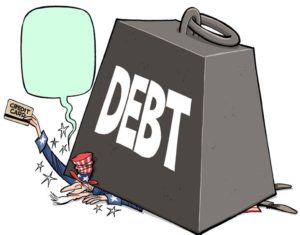The Best Educational Investments You Can Make
 If you look at the best ways to invest your money, many people will recommend investing in your education. The reason is that spending money on your education isn’t just a one-time investment. Adding qualifications to your resume is an investment in yourself and could lead to higher earnings in the future. You’re not buying an asset that could start depreciating or taking a risk on an investment that could end up losing you money. If you want to invest in your education, there are a few smart ways you can do it. Try the following tips to consider your options.
If you look at the best ways to invest your money, many people will recommend investing in your education. The reason is that spending money on your education isn’t just a one-time investment. Adding qualifications to your resume is an investment in yourself and could lead to higher earnings in the future. You’re not buying an asset that could start depreciating or taking a risk on an investment that could end up losing you money. If you want to invest in your education, there are a few smart ways you can do it. Try the following tips to consider your options.
Go to College
There will always be controversy over whether it’s necessary to go to college. Of course, not everyone wants or needs a college education. And some people will say that studying certain subject isn’t going to help you in your career. However, even though it can be expensive, going to college can do a lot for you in the long-term. There are several options to explore if you want to find one that works best for you financially. There’s the choice of going to community college, attending a college in your state, scholarships, or even studying online. Gaining postgraduate qualifications will also often help to boost your career.
Take a Course
Whether or not you choose to attend college, your education doesn’t need to stop once you’re no longer in school. It’s always worth exploring your options for learning new skills and improving your abilities. There are many online courses you can sign up for, but Training Connection believes that classroom learning is best. When you’re learning practical skills like how to use software, it’s useful to have an instructor who can show you how to do something. As well as investing your own money in training, it’s always useful to take advantage of any opportunities you might gain from employers.
Learn About Finances and Investment
Courses both online and offline can teach you about just about anything. You can choose skills that are useful for your career goals. But if you want to make the most of your money, learning about finance and investment is one of the best things you can do. Seek out courses in investing and managing your money if you want a good way to spend money on your education. While you can find free resources, it pays to invest in a more professional and comprehensive course, or perhaps resources like books.
Invest in Your Child’s Future
Your education isn’t the only one worth investing in. If you want another way to spend your money wisely, investing in your child’s future is also a good idea. You can help them out by saving money for their education, whether it’s a college fund or just general savings. You can also help them out when it’s time for them to go to college, perhaps by co-signing loans or simply giving them some financial support.
Education is one of the best things you can invest in because it sets you up for the future. Don’t dismiss the power it can have.
















